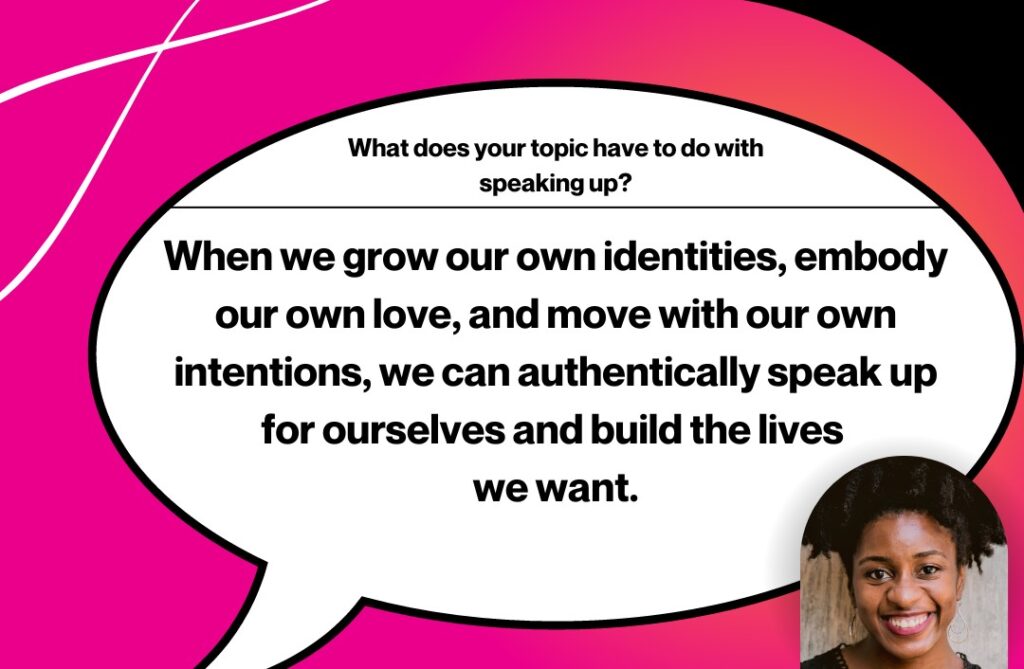They’re going to figure me out this time—a thought we all know too well. It bubbles up right before that new job interview, that big presentation, and that important dinner party (the one where we’re cooking the dinner). We’ve gathered the experience, checked off the wins, and “proven” ourselves consistently, but we still feel like “imposters” who fail to measure up. To make matters worse, we might become such good friends with self-doubt, we don’t realize that we’re dealing with imposter syndrome.
What is Imposter Syndrome?
A person with imposter syndrome doesn’t feel good enough for a particular role, position or title, despite her success that proves otherwise. With each new opportunity, you’re afraid that others will “figure out” that you’re not good enough and treat you accordingly. Author Maya Angelou, for example, feared being “figured out” as an unqualified author, though she had written eleven books at the time. We could be falling victim to imposter syndrome too, in three not-so-obvious ways.
3 Signs You Could be Dealing with Imposter Syndrome
You Often Ask for Confirmation and Reassurance
Suppose you are about to make a big decision at work. You have everything you need to make the decision on your own, but you still feel compelled to confirm with everyone else—your supervisor, team members, direct reports, and even people who have never done your job (looking at you, Mom and Dad). When we don’t feel qualified to be in a certain position, we don’t feel qualified to make decisions in that position either.
According to Bayview Therapy, seeking reassurance might temporarily relieve stress, but it might also have harmful long-term effects. The more you ask others for reassurance, the more you will depend on that reassurance before making a move. Not only that, but you will also crush your own self-confidence and feel stuck in your decision-making.
When dealing with imposter syndrome, we are tempted to “hide” our inner imposter by depending on the “experts” (i.e., anyone we perceive to be more qualified than us). From our perspective, the skills these experts have might fill in for our own perceived skills gaps. The next time you feel the urge to get reassurance from someone else, try breaking your decision down into smaller questions first. You might be surprised to find that you can answer many of those questions on your own.
Minor Mistakes Feel Like Major Mishaps
Imagine that you are carrying a glass plaque that reads, “I’m qualified.” Every mistake that you make, no matter how big or small, feels like a tiny crack in that once-perfect glass. You can’t help but worry that you will eventually shatter the entire glass, and that others will “discover” you are an imposter. Imposter syndrome makes our mistakes seem so much bigger than just mistakes—it turns them into Sherlock-level fraud detectives.
One of the biggest reasons we fear mistakes is because of the shame that comes along with them. We are afraid that others might see our shortcomings and label us incompetent or unworthy. As cliché as it is, mistakes are not only inevitable, but vital to our learning and personal growth.
When you find yourself afraid of making a mistake, try looking at the actual consequences of the situation. If you misspell a word in your client’s presentation deck, odds are, they are not going to cancel the whole deal because of it. Sometimes, the fear of being an imposter can cause us to exaggerate the potential consequences of our mistakes. As a result, we shy away from mistakes altogether.
You Hesitate to Share your Qualifications
Have you ever been in a group setting and practiced how you would introduce yourself when your turn came? I’m an author…no, I’m a writer…no, I’m a person who writes occasionally. Dealing with imposter syndrome can make us uncomfortable with sharing our talents, titles, and skills with others.
Women in particular are more likely to downplay their own performance, even when they perform just as well as men. We feel that by not referring to ourselves with a certain title or set of qualifications, we are protecting our “perfect” image. No one will take a closer look and “find us out” if we don’t even claim to be what they are looking for.
Practice introducing yourself to others by starting small. “I’m a jogger, I’m a dog-owner, I’m an avid reader.” By practicing with those skills and titles that you feel less pressure from, you will grow more confident in the areas that matter the most to you. Remember that most people have no idea what your profession or skills really entail. If you are a pianist, someone who has never touched a piano isn’t going to know how well you know scales. Others don’t typically judge us as harshly as we like to believe.
Dealing with imposter syndrome is a challenge—especially when we don’t even realize that it is there. The smallest of doubts can make us question every decision we have ever made and every success we have ever achieved. Even the most confident of people need reminders of their own skills and abilities. By paying close attention to our own habits, thoughts, and feelings, we can weaken imposter syndrome’s hold on us, one reminder at a time.
Learn more about Imani and her journey at the Speak Up Women Conference.
If you enjoyed this article, join our newsletter and community at SpeakUpWomen.com to receive updates about new articles and events and our upcoming conferences.





